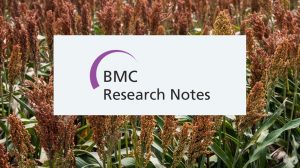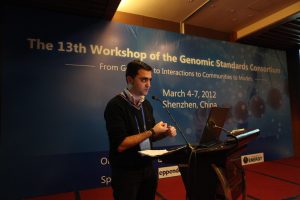
Quick thoughts on the recent announcement by figshare and F1000 about the new journals being launched on the F1000 Research site. The articles being published have data sets embedded as figshare widgets in the body of the text, instead of being, say, a static table. For example, the article: has a widget that looks like this: You can interact with this widget to view the data.



